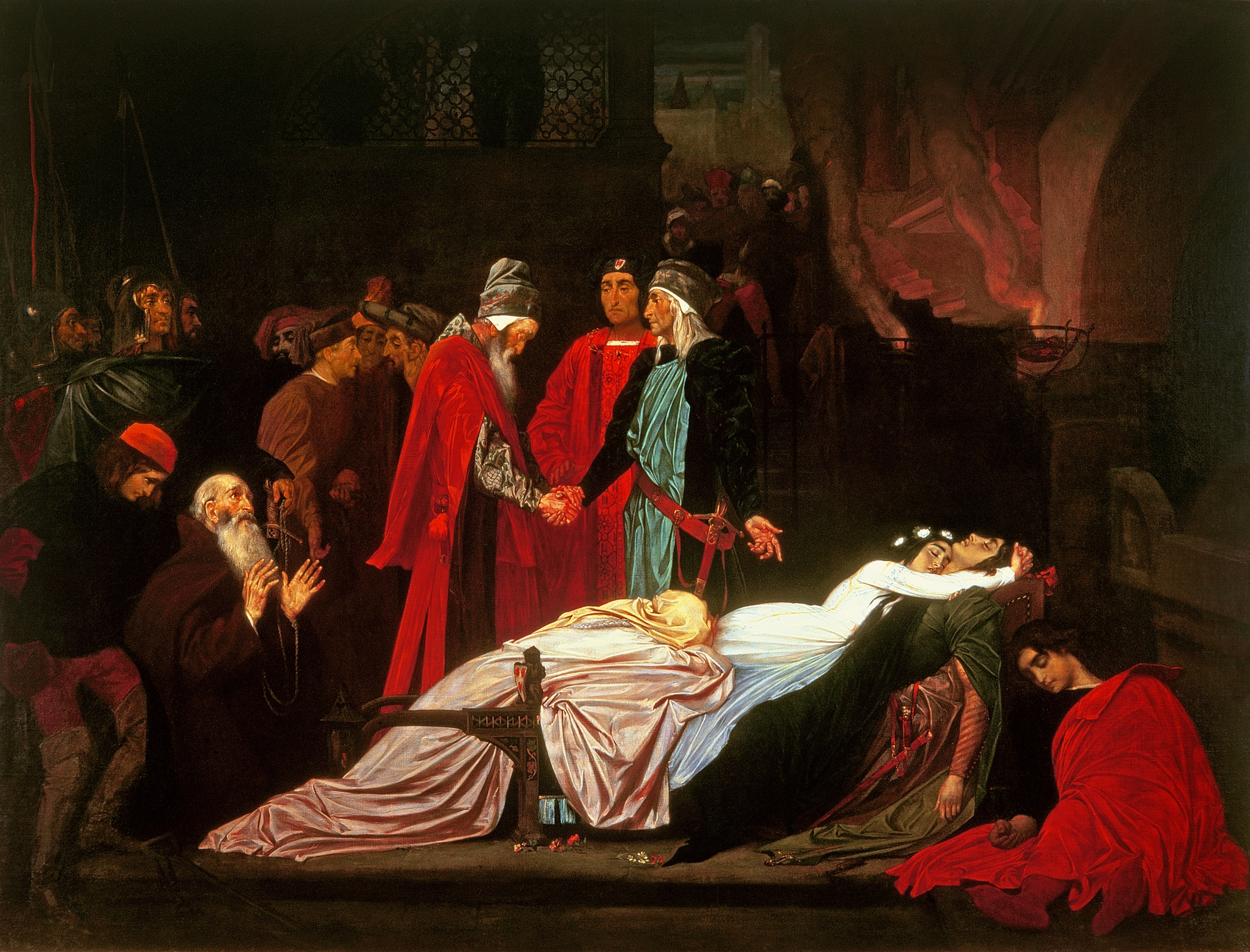We are told that we should forgive, but we are neither told why nor how. Why should we forgive those who have wronged us? We forgive in order to have peace of mind that hatred robs away from us. By realizing that it is our resentment that makes us a spiritual hostage to our enemies, not their cruelty, we also realize that by letting go of that resentment, we set ourselves free from the mental prison they threw us into.
Right after the war and the genocide in my country, the surviving members of my family were all traumatized: my mother had been raped and infected with AIDS, I had escaped unspeakable horrors of carnage, all of our possessions had been looted and half of our house had been dismantled. I was in a dark mental prison: there was such a vehement hatred in my heart against the murderers. I aspired to see them suffer more than I had suffered and I was intent on revenge.
Had I had the means to carry it out, I could have tortured them horribly and delivered them an unthinkable death. I enrolled in Karate classes in order to acquire the means to carry out a well-deserved vendetta.
Then one day, it dawned on me that I had already become what I abhorred most: a potential murderer. Once a human, I had turned into a dragon, harboring very cruel thoughts. Was I any better than any murder if we shared common bonds of hatred? No.
That is when I felt really humbled and compelled to beseech my heart for an unsolicited, unspoken forgiveness to murders and rapists for hating them. That is when the miracle happened. I felt emotionally free for the first time in a long time. The inner oppression ceased.
There is an ancient tale that goes as follows:
There was country that had a misfortune to be ruled by a powerful dragon, who mistreated and killed his subject at his whim.
The oppressed people grew angry, to the point of beginning a revolution to drive the dragon from the royal castle and enthrone a human. They chose a wise young man to behead the dragon and become the king.
It was an epic fight, during which the young man was singed by the dragon’s flames, but he managed to behead it. The people rejoiced for their freedom, but lo and behold, while they were still celebrating the end of a tyranny, the young man turned into a dragon, having been hit by the slain old dragon’s fire. And so the oppression in the country went on and on....
The lethal virus of hatred can be easily passed on from the tormentor to the victim. Thus, the problem is that virus, not those who carry it. That is why the Buddha said that the cause of suffering is Hatred, not the haters.
We forgive in order to heal that virus, in order to get out of a mental prison--not to do a favor to anyone. The biggest step though is to realize that we are sick and that our sickness will not go away by spreading the virus, but by neutralizing it with forgiveness and understanding.
Hela Erlich, a Jewish woman, grew up in German Nazi, and though her immediate family escaped the death camps by immigrating just before the outbreak of the World War II. Her grandparents on both sides and all her childhood friends lost their lives in the Holocaust.
For many people, the passage of time softens the heartache; for Hela, the opposite occurred. Slowly, almost imperceptibly, her hurt turned into bitterness, and her pain into anger. She wanted to be free to live and love. In fact, she struggled constantly to keep from hardening her heart, but she could not forgive.
Then one day it dawned on her: she would never be able to forgive her family’s executioners until she was able to see that despite their guilt, they were still fellow human beings. When they were the spectre of Evil she was unable to forgive: Evil, being impersonal, cannot be forgiven, only accepted. But humans are not spectres and they are not impersonal.
“Trembling, I realized that if I looked into my own heart, I could find seeds of hatred there too. Arrogant thoughts, feelings of irritation toward others, coldness, anger, envy and indifference ---these are the roots of what happened in Nazi Germany—and there are there in every human being—as I recognized more than before that I myself stood in desperate need of forgiveness, I was able to forgive, and finally I felt completely free”.
Hatred does not drive out hate, just as darkness never drives out darkness. That is why Jesus Christ said: “Love your enemies, do good to those who hate you, bless those who curse you, pray for those who mistreat you." It is easy to love those who love us. Yet, even the people whom we perceive as bad love those who love them. If we do as they do, we are not different from them at all. Therefore we have no right to judge them.
If we love those who hurt us, we are different from the "evil people," and strangely enough, we have no reason to judge them any longer, because no one judges what he loves. That is why Jesus said: "Judge not, lest ye be judged."
My heroine, Mother Teresa of Calcutta once said: “If you have time to judge people, you do not have time to love them.” There is no logical justification for harboring any hatred, just as there is nothing such as righteous anger.
Paulo Coelho wrote in the Manual of the Warrior of Light :
“Hidden behind all sorts of good intentions are feelings that nobody dares to confess : revenge, self-destruction, fear of victory, guilt, a macabre joy of witnessing a tragedy that affects other. The Universe does not judge : it conspires in favor of our wishes. Thus, the warrior of light has the courage to look into the zones of Shadow of his soul. He strives to enlighten them with forgiveness.”
What are the Shadow zones of our souls? The secret and dark quadrants of our minds, where we hide dragons of hatred, where stem evil words, evil deeds and evils thoughts.
Evil words (cursing, lying, backbiting), and evil deeds (hurting, killing, looting, raping...) come from evil aspiration (thoughts of cruelty and revenge), and evil aspirations come from wrong views. Thus, the only thing to judge is the Wrong View or Ignorance.
The opposite of Ignorance is Wisdom, which makes us realize that invariably, it is an emotional suffering, not cruelty, that makes other people hurt us. Those people have been rejected or betrayed or humiliated or abandoned or mistreated, or else, they have been victims of a systematic brainwashing, as it was the case in my country.
Unconsciously, they usher their revenge upon us. As we suffer, we see their Suffering, not their cruelty. And we see that the true cause of Suffering is an energy of Hatred, which can be shared by both the tormentor and the tormented. This is the Right View.
Right View is an insight into the Four Noble Truths: Suffering, the Causes of Suffering, the Cessation of Suffering and the Path leading to Cessation of Suffering. Suffering is impersonal and cannot be quantified or be given any epithet. There is nothing such as a Tutsi or a Tamil suffering different from a Hutu or a Sinhalese suffering.
A small kid’s pain over the loss of her doll can be as acute as a great king’s distress over the destruction of his castle. Who knows what that childhood trauma will make her do when she becomes a queen?
A king may kill as many people as he can to avenge his castle, including kids with dolls. Ultimately though, dolls and castles, kings and kids are all similar in the face of life’s uncompromising equalizer, Death.
Kings and subjects, Jews and Nazis, rich and poor, Blacks and Whites, strong and weak, all sentient beings share a common bond of suffering, and a common aspiration to be free from it.
I have been invited to talk about the dark past of my country somewhere in Europe as a peace activist and a monk. I will talk about the dark history but more importantly, I will talk about my humble views on how to learn from it. I will talk about forgiveness and the story of the slain dragon. I have seen people who start wars with a noble aim to end tyranny, but end up becoming more tyrannical than what they fought in the first place, because their struggles and aspirations stem from a place of anger and hatred, not a place of understanding and wisdom.


